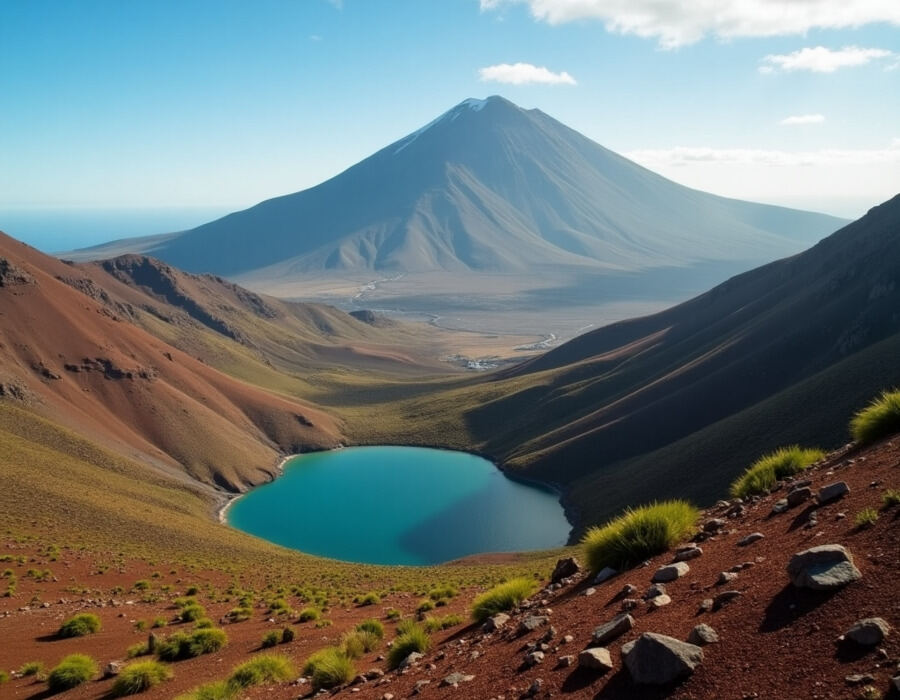Published on
October 4, 2025
Spain leads a green revolution as Tenerife introduces a powerful eco tax on Mount Teide to protect its iconic volcanic landscape and promote sustainable tourism by directly addressing the twin challenges of overtourism and environmental degradation that have intensified in recent years. Standing as Spain’s highest peak and a UNESCO World Heritage Site, Mount Teide attracts millions of visitors annually, putting immense pressure on its fragile ecosystem. The new eco tax, scheduled to take effect from January 2026, is part of a comprehensive conservation strategy aimed at regulating tourist numbers, reducing daily footfall, and funding vital preservation efforts. By limiting the number of climbers and channeling the collected fees into trail maintenance, waste management, and habitat restoration, Spain is taking decisive action to safeguard one of its most treasured natural wonders while setting a precedent for other destinations seeking to balance tourism growth with environmental responsibility.
Tenerife to Introduce New Eco-Tax for Mount Teide Visitors to Protect the Environment and Regulate Overcrowding
Tourists visiting Tenerife will soon have to pay a new eco-tax to climb Mount Teide, one of Spain’s most famous natural landmarks. Starting 1 January 2026, the island’s government will begin charging non-resident visitors between €10 and €25 depending on the route and time chosen. Tenerife residents will continue to enjoy free access. The measure is part of a broader initiative to control excessive visitor numbers and preserve the fragile volcanic environment of Mount Teide National Park.
Regulating Tourism and Protecting the Environment
Mount Teide, standing 3,718 metres high, is Spain’s tallest mountain and a UNESCO World Heritage Site that attracts millions of visitors every year. In recent years, the park has faced mounting environmental pressure due to overcrowding, road congestion, and erosion. The new eco-tax is designed to reduce this impact by limiting daily entry and generating dedicated funds for conservation.
Under the new policy, only 300 people will be allowed to climb the mountain each day. Visitors will be divided into three time slots, with a maximum of 100 climbers per slot. This system will regulate the flow of tourists and help protect the delicate ecosystems that surround the volcano. The restricted time slots will also ensure a more peaceful and safer climbing experience, especially during sunrise and sunset hours.
Generating Funds for Conservation
The eco-tax is expected to generate approximately €650,000 annually. All proceeds will go directly towards maintenance, conservation, and the management of Teide National Park. The funds will support the upkeep of hiking trails, waste management, and habitat restoration projects that have been under increasing strain due to rising visitor numbers.
According to recent data, Teide National Park received more than five million visitors in 2024, up from around 3.5 million in 2020. Approximately 88 percent of visitors were tourists, while only 11 percent were local residents. This surge in international arrivals has placed immense stress on the area’s natural resources, leading to calls for stronger conservation measures.
Stricter Access Requirements for Climbers
Visitors planning to climb Mount Teide will be required to make reservations through the official Tenerife ON platform. A digital or printed permit, along with official identification, will be mandatory for access. This system aims to ensure that the park operates within its designated capacity and that visitors adhere to strict environmental and safety standards.
To climb safely, visitors must be properly equipped. The guidelines require climbers to wear long trousers, warm clothing, and durable hiking boots. In addition, they must carry sunscreen, water, energy snacks, gloves, a flashlight or headlamp, a fully charged mobile phone, and a thermal blanket. These requirements are meant to guarantee safety in the park’s high-altitude conditions, where temperatures can drop significantly.
Fines and Penalties for Non-Compliance
Authorities will impose penalties for any violations of the new rules. Those attempting to access the mountain without a valid permit may face fines of up to €600. Guides who breach park regulations can be suspended for up to a year. Visitors who reserve a permit but fail to use it without proper justification may face temporary suspension from future bookings.
Access restrictions will also apply to minors and individuals with mobility or health issues to ensure safety and reduce the risk of accidents. The government emphasises that these rules are designed to protect both visitors and the natural environment.
Sustainable Tourism in the Canary Islands
The introduction of the eco-tax at Mount Teide follows similar policies in other protected areas of the Canary Islands, such as the mountain village of Masca. These measures reflect a growing trend across the region to balance tourism growth with sustainability.
Tenerife’s government believes that responsible management of natural attractions is essential for maintaining the island’s long-term appeal. By implementing controlled access and eco-fees, the island aims to reduce environmental damage while still welcoming visitors to enjoy its unique landscapes.
Spain leads a green revolution as Tenerife introduces a powerful eco tax on Mount Teide to protect its fragile volcanic landscape and manage overtourism. The new measure aims to preserve Spain’s highest peak while ensuring sustainable tourism through controlled access and dedicated conservation funding.
Ensuring Mount Teide’s Future
Mount Teide’s volcanic terrain and striking views have made it one of Europe’s most visited natural attractions. However, with visitor numbers increasing every year, the need for stricter management has become clear. The eco-tax and new capacity rules mark a significant shift towards sustainable tourism practices that prioritise conservation over volume.
By limiting daily visitors and ensuring that all climbers contribute to preservation efforts, Tenerife is setting a precedent for how popular destinations can manage overtourism while protecting their most valuable natural treasures. Mount Teide’s future now depends on this balance between accessibility and environmental care, ensuring that generations to come can continue to experience its beauty responsibly.
